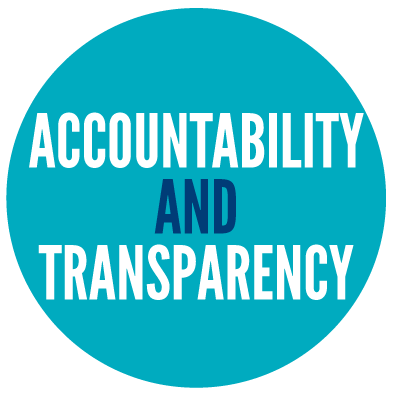The Consequences of Political Scandal on Public Trust and Confidence
Political scandals have the power to shatter this foundation, leaving a lasting impact on both the individuals involved and the broader political landscape.

The Far-Reaching Consequences: The Impact of Political Scandals on Public Trust and Confidence
In the complex world of politics, the relationship between the governed and their elected representatives is built upon a fragile foundation of trust and confidence. Political scandals have the power to shatter this foundation, leaving a lasting impact on both the individuals involved and the broader political landscape. This article delves into the intricate dynamics of how political scandals can erode public trust and confidence, affecting not just the immediate players but the entire democratic process.
The Anatomy of Political Scandals
Political scandals can take various forms, ranging from financial improprieties to personal misconduct. However, they all share common characteristics that make them potent trust disruptors:
Betrayal of Trust: At the core of any political scandal is a betrayal of the public's trust. When elected officials, who are supposed to serve the interests of their constituents, engage in unethical behavior or illegal activities, it sends a message that the system itself may be flawed.
Media Amplification: In today's digital age, scandals spread like wildfire thanks to media coverage. News outlets capitalize on sensational stories, ensuring that scandals reach a broad audience and remain in the public eye for extended periods.
Crisis of Integrity: Scandals often cast doubt on the integrity of not only the individuals involved but also the institutions they represent. The very essence of democracy is called into question when elected officials are embroiled in controversy.
Erosion of Public Trust
The impact of political scandals on public trust and confidence cannot be overstated:
Distrust in Politicians: Scandals lead to widespread disillusionment with politicians. Voters may become skeptical of campaign promises and perceive all politicians as corrupt or untrustworthy.
Decreased Civic Engagement: When the public loses faith in the political system, they are less likely to participate in civic activities such as voting, volunteering, or running for office. This apathy weakens democracy's foundations.
Institutional Mistrust: Scandals can also extend mistrust to political institutions themselves, including the judiciary and law enforcement, as their handling of high-profile cases is scrutinized.
Loss of Confidence in Democracy: Pervasive political scandals can undermine the very idea of democracy. Citizens may begin to question whether their voices and votes truly matter in a system that appears to be tainted by corruption.
?The Ripple Effect
The impact of political scandals is not confined to the immediate individuals involved. It has far-reaching consequences:
Party Fallout: Scandals can tarnish entire political parties, leading to internal divisions and decreased public support. Opposition parties may exploit the situation, further polarizing the political landscape.
Economic Consequences: Political instability resulting from scandals can deter foreign investments and hinder economic growth. Businesses may lose confidence in the government's ability to provide a stable environment for commerce.
International Relations: Scandals can damage a country's reputation on the global stage, affecting diplomatic relations and alliances. Trust between nations can erode when governments are seen as untrustworthy or unreliable.
?Rebuilding Trust and Confidence
While political scandals can have devastating effects, efforts to rebuild trust and confidence are not futile:
Accountability: Holding those responsible for the scandal accountable through legal processes can demonstrate that the rule of law prevails even in the face of corruption.
Transparency and Ethics Reform: Implementing greater transparency and ethics reforms within government institutions can help prevent future scandals and restore public confidence.
Engagement and Education: Encouraging civic engagement and providing education on the political process can empower citizens to be more discerning voters and hold their representatives accountable.
Leadership and Integrity: Political leaders play a pivotal role in rebuilding trust. Leaders who uphold high ethical standards can set a positive example for their constituents.
Part 2: Strategies for Rebuilding Trust and Confidence
Recovering from the fallout of political scandals is a complex and long-term endeavor. To restore faith in the political system, various strategies must be employed at multiple levels of society and government:
?Restoring Public Trust
Political Accountability: Holding those responsible for scandals accountable is essential. This process should be transparent, unbiased, and just. Legal proceedings should be carried out without political interference to demonstrate that the rule of law prevails. Public officials found guilty should face appropriate consequences, which may include resignation, fines, or imprisonment.
Ethical Governance: Implementing and enforcing ethical guidelines and standards for public officials is crucial. Governments should establish robust ethics committees and independent oversight bodies to monitor and investigate potential misconduct. Clear codes of conduct can serve as a preventive measure.
Transparency and Open Government: Governments should strive for greater transparency in their operations. This includes disclosing financial records, decision-making processes, and public expenditure. Open government initiatives and access to information laws can help citizens hold their representatives accountable.
Whistleblower Protection: Encouraging and protecting whistleblowers can uncover corruption and unethical behavior early on. Robust whistleblower protection laws and mechanisms should be established to shield those who come forward with evidence of wrongdoing.
Public Engagement and Education: Civic education programs can empower citizens to understand and participate in the political process. Encouraging voter participation, community engagement, and political literacy can help citizens make informed decisions and hold politicians accountable.
Rebuilding Institutional Trust
Reform and Modernization: Institutions involved in scandal investigations, such as the judiciary and law enforcement, should undergo reform and modernization. These institutions must be well-equipped to handle complex cases without bias or undue influence.
Independent Oversight: Establishing independent oversight bodies and commissions can help ensure that investigations are conducted impartially. These organizations should be adequately funded and staffed to carry out their missions effectively.
Strengthening Checks and Balances: Governments should strengthen the separation of powers, ensuring that no single branch can dominate the others. Robust checks and balances within the political system can help prevent the abuse of power.
?Leadership and Political Culture
Ethical Leadership: Political leaders should lead by example, upholding the highest ethical standards. Leaders who demonstrate integrity, honesty, and transparency can inspire trust and confidence in their constituents.
Political Culture Change: Fostering a culture of ethics and accountability within political parties is essential. Parties should prioritize selecting candidates with clean records and strong ethical values. Party leaders must take a zero-tolerance stance on corruption.
Public Apologies and Reconciliation: Public figures involved in scandals should consider issuing sincere apologies to the public. Acknowledging wrongdoing and showing a commitment to personal growth and change can help rebuild public trust over time.
?International Repercussions
Diplomacy and Reconciliation: If a scandal has caused harm to international relations, diplomatic efforts are needed to repair the damage. Honest dialogue and efforts to rebuild trust with affected nations can help restore diplomatic ties and alliances.
Economic Stability: Governments must work to restore economic stability in the aftermath of political scandals. Reassuring the business community and foreign investors of a stable and corruption-free environment is vital for economic recovery.
Political scandals have the potential to inflict severe damage on public trust and confidence, but they can also serve as a catalyst for positive change. By implementing accountability measures, increasing transparency, fostering ethical leadership, and engaging the public, societies can rebuild what was lost and emerge stronger and more resilient. Ultimately, the restoration of trust and confidence in the political system is an ongoing process that requires sustained effort and a commitment to the principles of democracy and good governance. In this way, political scandals can be not just a source of crisis but also an opportunity for growth and renewal in the democratic process.
What's Your Reaction?















